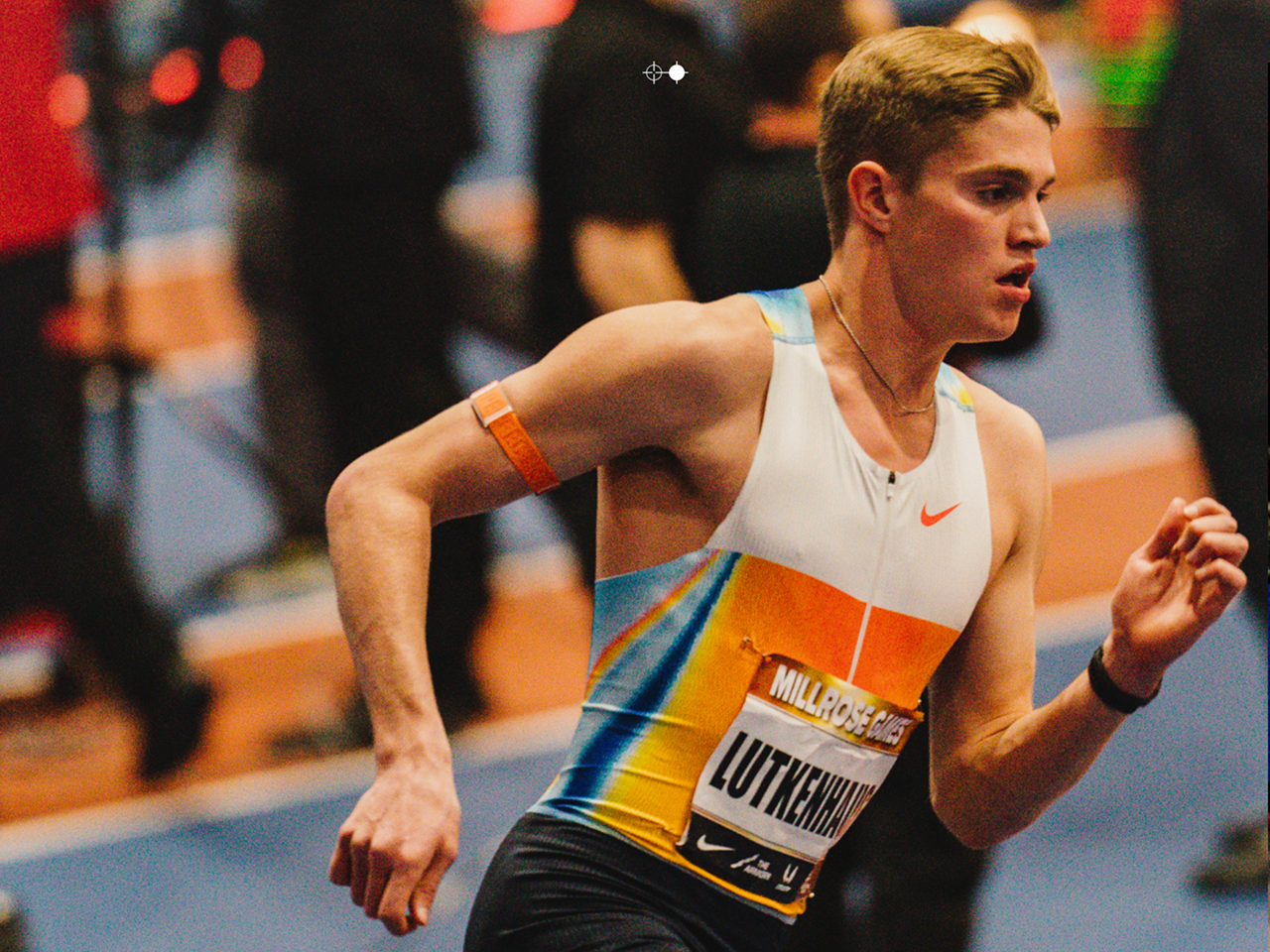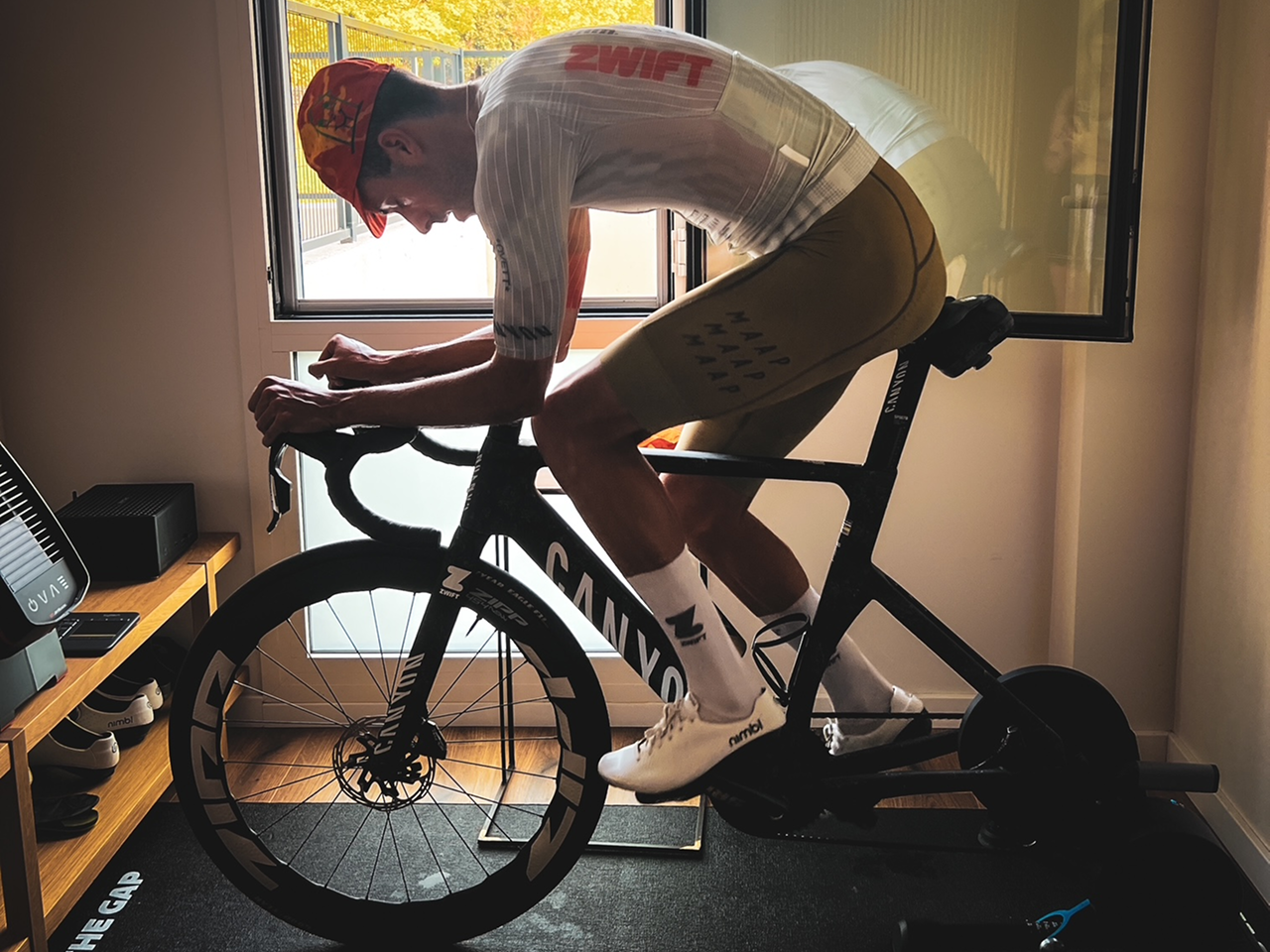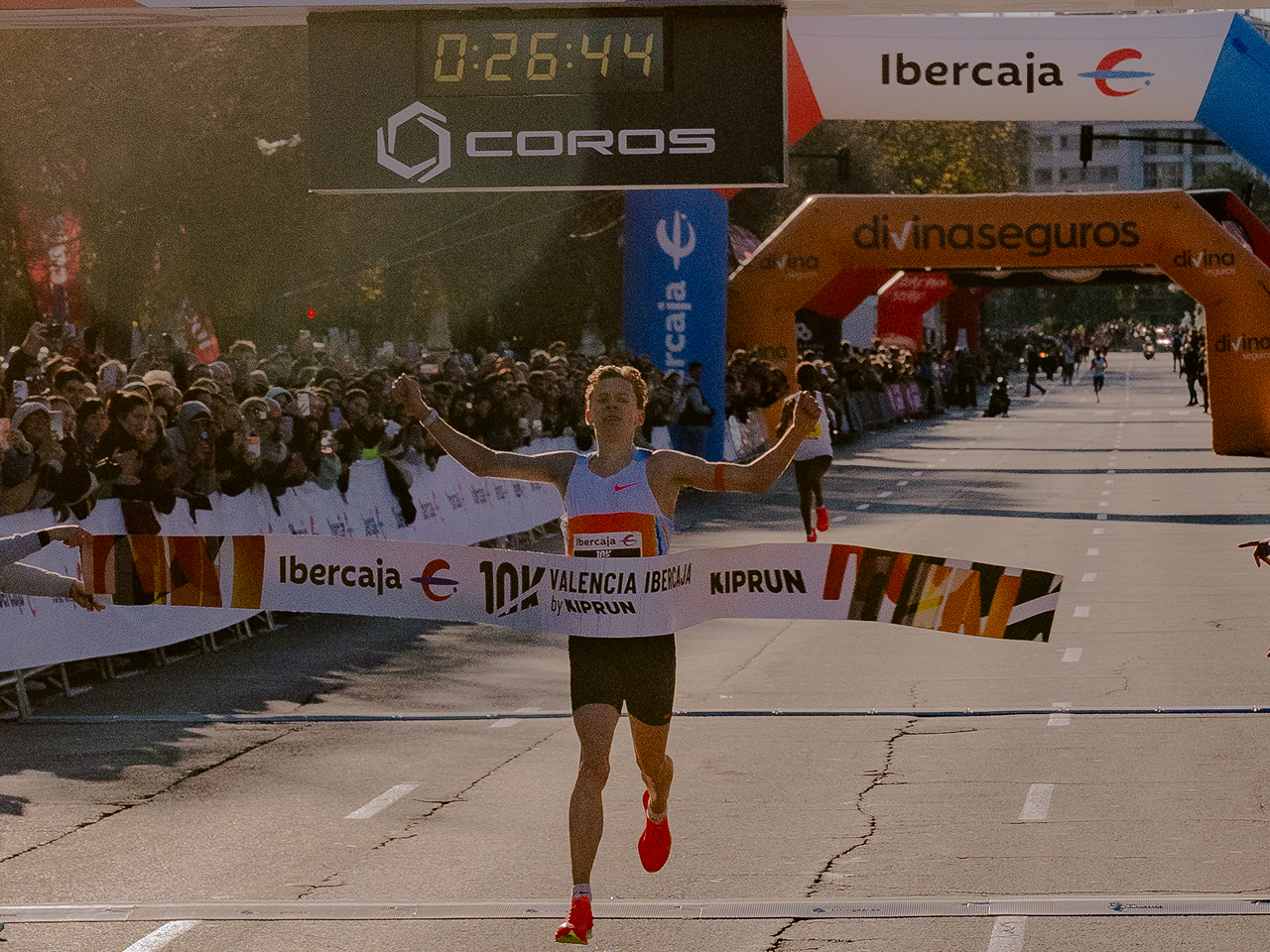Eliud Kipchoge approaches his long runs with discipline, balance, and mental strength. Backed by data from a recent training session, explore Kipchoge's five principles for runners at any level.
Inside a Champion’s Long Run
Eliud Kipchoge recently completed one of his signature marathon workouts: A 40km long run in 2:13:58, averaging a pace of 3:21/km, with an efficient cadence of 181 steps per minute. This wasn’t a race, but a carefully executed long run, part of the consistent training that has shaped him into the greatest marathoner of all time.
Each long run is a quiet rehearsal for greatness, "every long run is different. Whereby the weather, the route we run, the goal of the day, change every week". With decades of disciplined preparation behind him, he treats each step as an opportunity to refine both body and mind. From pacing to mindset to recovery, his approach to the long run is the product of relentless curiosity and unwavering purpose. Sharing his lessons, in the hope of promoting "a running world", here are Eliud Kipchoge’s Top 5 Tips for Mastering the Long Run.
1. Build a Well-Balanced Training Plan
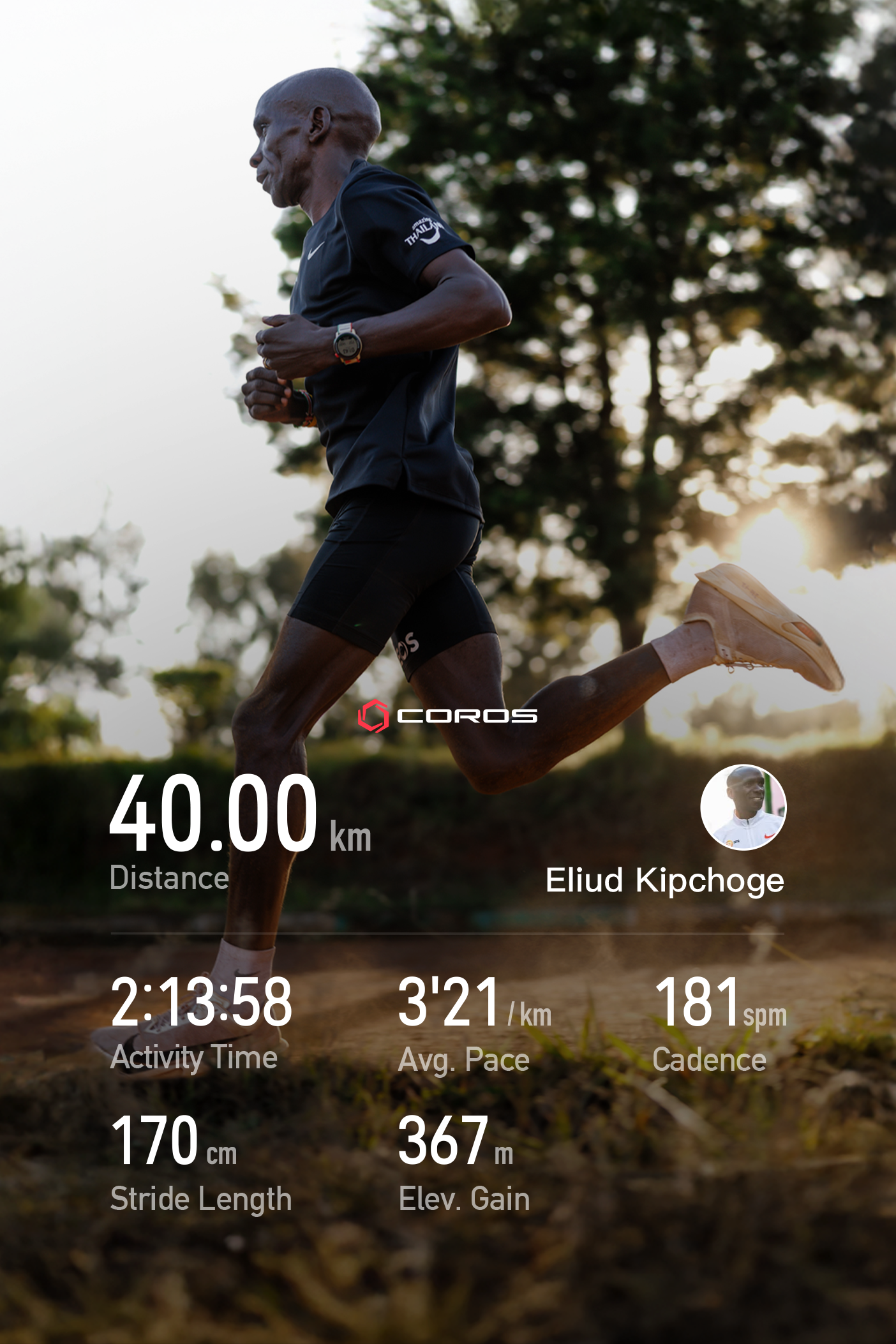
“A well-balanced running program focuses on endurance, speed, and tempo. But also strength, core exercises, and stretching which are needed to maintain a healthy body.”
Kipchoge’s success isn’t just about running; it’s about a holistic approach. A strong body supports a strong runner, ensuring endurance and resilience on race day. Balance your training by incorporating speed work, recovery, and strength exercises to maximize performance.
COROS Education: Browse and download free strength workouts that are suitable for any ability or discipline straight to your COROS device.
2. Commit to Weekly Long Runs
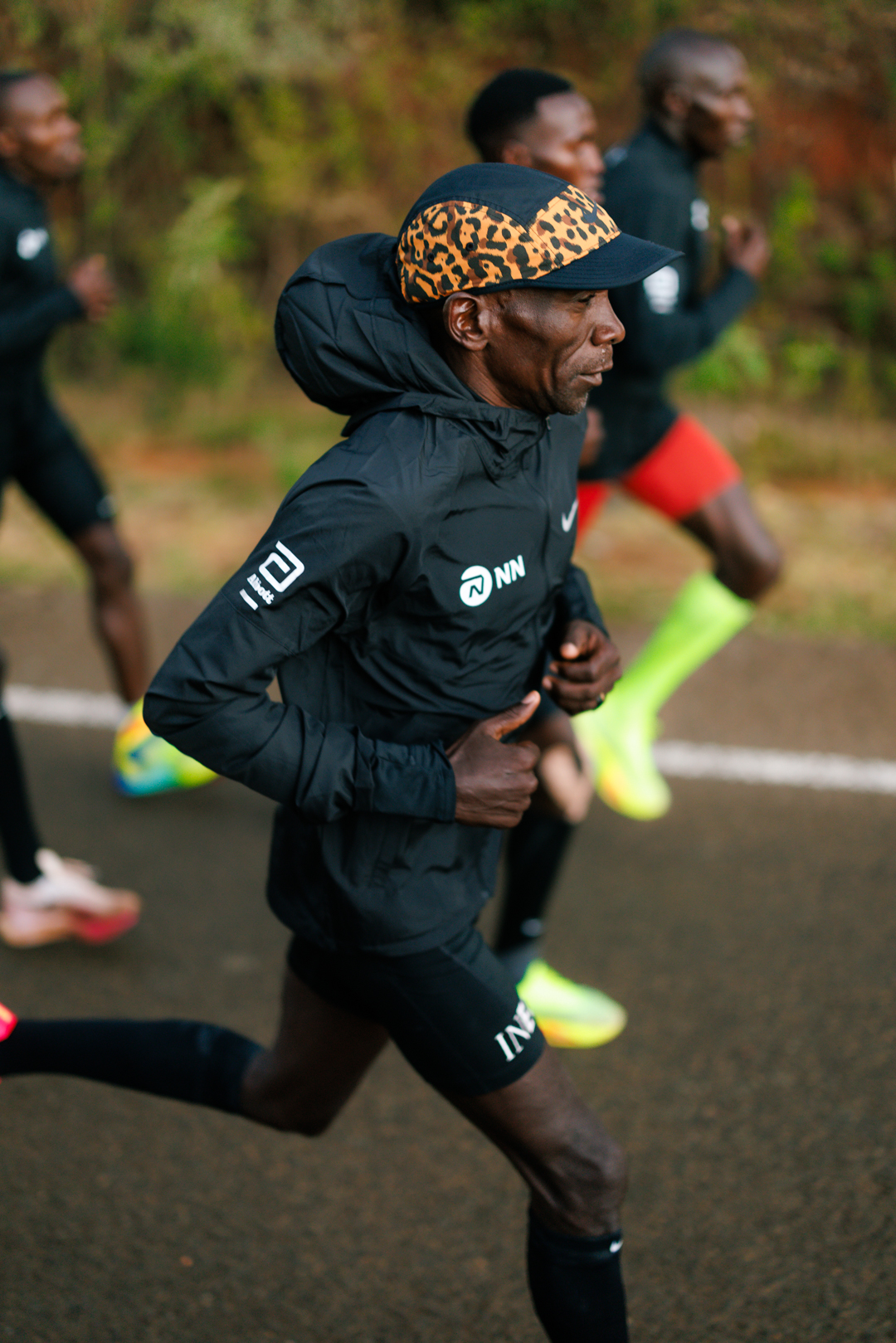
“Over the last 3 months of training before a marathon, we do one long run per week with my last long run being two weeks before a race.”
Long runs are the backbone of marathon training. They help condition your body to endure 26.2 miles and prepare your mind for the mental battle ahead. Make them a staple in your routine, gradually increasing distance and intensity as you progress.
3. Train Your Mind as Much as Your Body
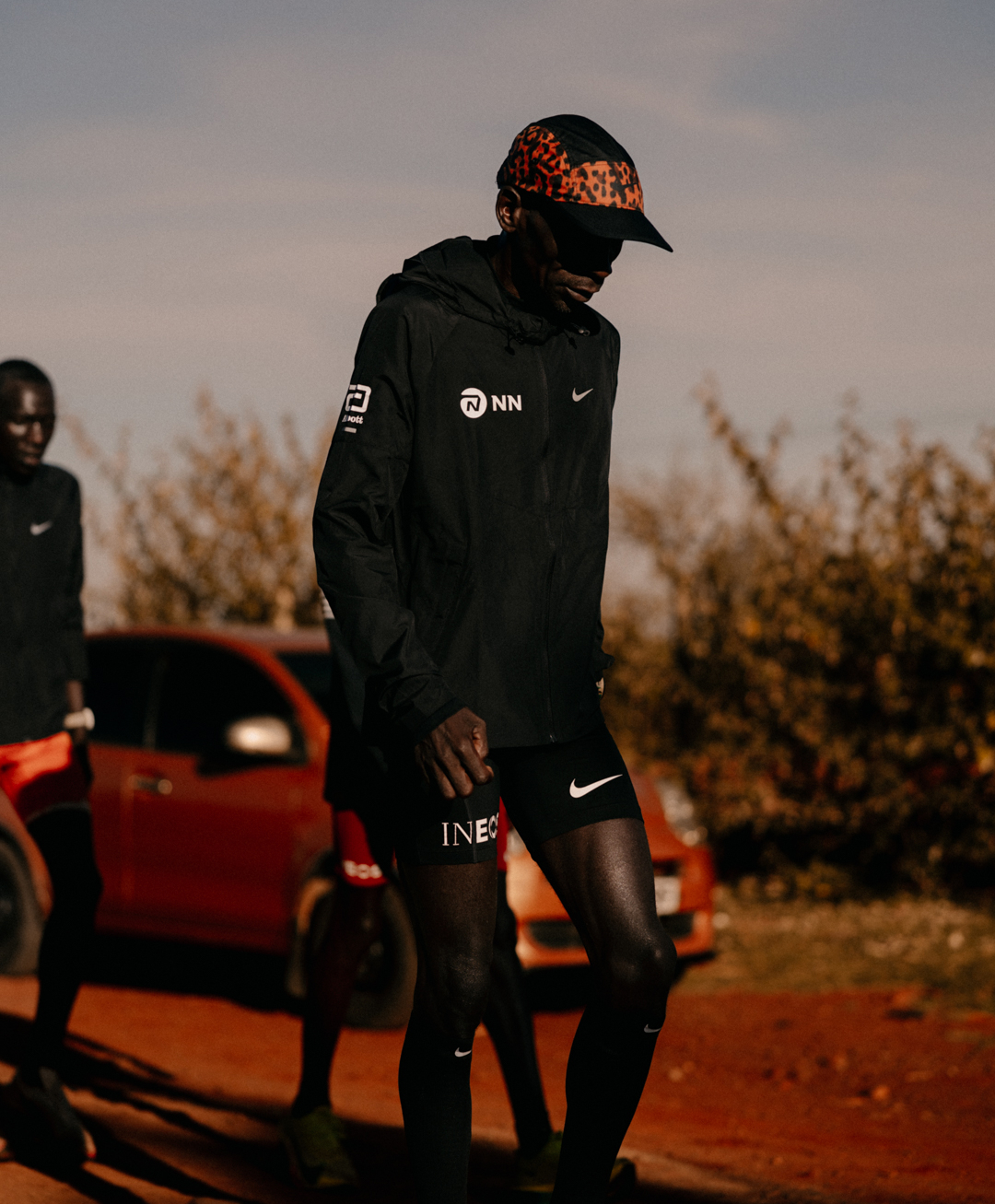
“It’s okay for a training session not to go as well as you hoped… You will be surprised at how helpful even a bad training session is for you. You still made the effort, your body hit a challenge and had to learn to work with your mind to battle through it.”
The marathon is a test of mental resilience. Bad days are inevitable, but they are part of the process. Embrace them, knowing that each struggle strengthens your ability to push through adversity on race day.
4. Focus on Progress, Not Just Speed
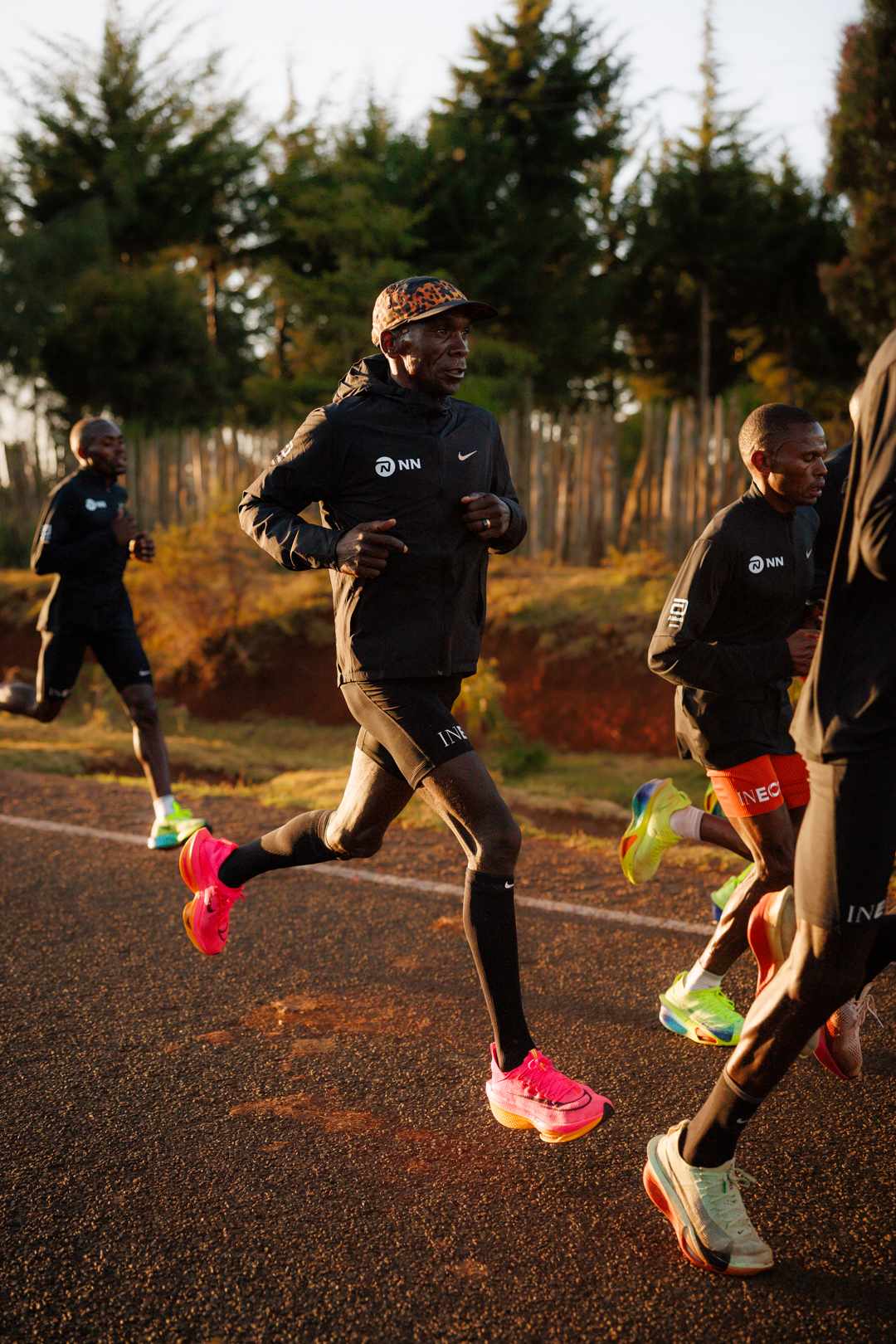
“For me, a successful long run is about feeling power in my legs, being able to push hard with the teammates around me, and focusing on the rhythm of my breathing. It’s all about putting in good miles to build strength.”
Kipchoge’s signature 40km long run, starts conservatively and finishes strong. The key takeaway? It’s not about hitting a certain pace—it’s about completing the distance feeling strong and controlled. Run by effort, listen to your body, and prioritize endurance over speed.
COROS Education: Progression runs can help you to get more comfortable with your goal race pace and run negative splits.
5. Stay Disciplined—There Are No Shortcuts
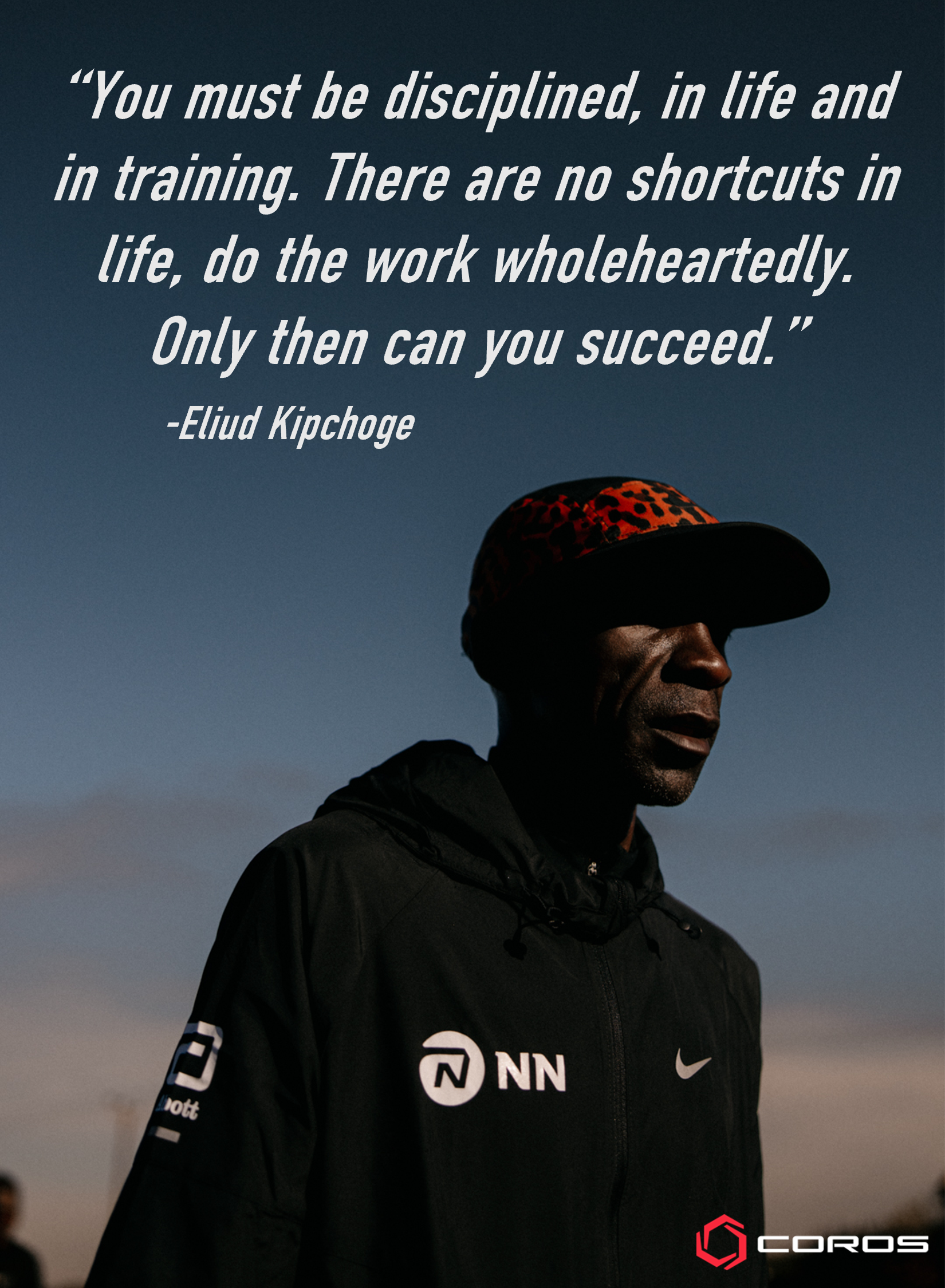
“You must be disciplined, in life and in training. There are no shortcuts in life, do the work wholeheartedly. Only then can you succeed.”
Success in marathon training, as in life, comes down to consistency and commitment. Show up, do the work, and trust the process. The gains happen over time, and discipline is the foundation of progress.
Apply Kipchoge’s Wisdom to Your Training
Kipchoge’s approach is simple yet profound: train smart, stay patient, and trust in consistent effort. By integrating his five principles into your marathon preparation, you can elevate your performance and enjoy the journey to race day.
Stay the course, embrace the challenge, and remember: “No human is limited.”

/filters:quality(90)/fit-in/970x750/coros-web-faq/upload/images/1411c05f1fbaa3e97cfe896a04aea9f8.jpg)

